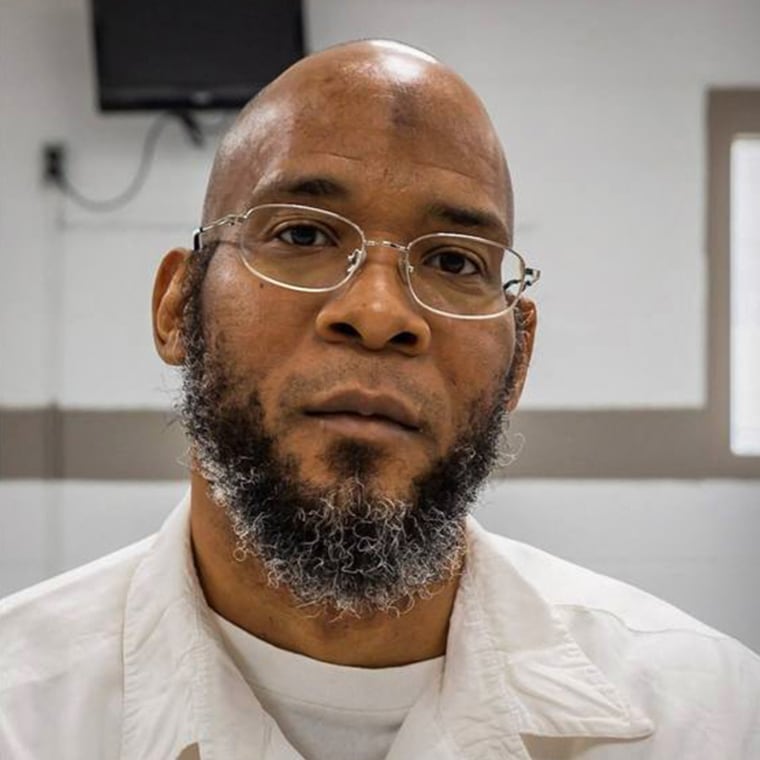Marcellus Williams is scheduled to be executed in Missouri on Tuesday. The death row inmate had led to numerous rescue attempts because doubts arose about the evidence presented in the 2001 murder trial and the approach of a lawyer in the case.
Williams, 55, was sentenced to death for first-degree murder in the killing of newspaper reporter Felicia “Lisha” Gayle, who was found stabbed to death in her home near St. Louis in 1998.
He maintained his innocence and his lawyers requested that the conviction be overturned on the grounds that no DNA of his was found on the murder weapon and that his jury trial was unfair.

On Monday, the day before Williams was scheduled to be put to death by injection, his lawyers argued before the Missouri Supreme Court that his execution should be halted because the prosecution’s trial lawyer in the 2001 case said at a recent hearing that he excluded a black man from the jury because of his race and that the prosecution mishandled the murder weapon. The lawyers are asking that the court either find that those actions violated Williams’ rights or that a lower court should resolve those issues.
“The prosecutor in the Marcellus Williams case admitted under oath that he rejected a juror in part because of his race,” attorney Jonathan Potts said at Monday’s hearing.
Potts said the prosecutor struck a black man “partly because he was a young man with glasses” and looked similar to Williams. He said they looked “like brothers.”
“He has admitted that there is indeed a racist component here, and that is unconstitutional,” he said.
The jury also included a black juror.
Potts also argued that the prosecutor maliciously mishandled the murder weapon by holding it without gloves, thus contaminating the knife, which he said could have been used to prove Williams’ innocence.
Assistant Attorney General Michael Spillane denied that the potential juror was rejected because he was black, saying, “There is no clearly compelling evidence here. There is no evidence at all.”
He also said that based on the procedures at the time, the attorney did not mistreat the evidence by touching the knife without gloves after the examination.
At the time of the trial, an inmate who shared a cell with Williams and an ex-girlfriend said Williams confessed to them that he was responsible for the murder. His lawyers said the two were after a bounty.
In January, St. Louis County Chief Prosecutor Wesley Bell filed a motion to vacate or overturn Williams’ conviction and sentence. The motion was filed in part because DNA experts had concluded that Williams did not match the DNA found on the murder weapon, based on the results of a test that was not available at the time of the trial.
Tests prior to the hearing showed that the DNA matched that of members of the prosecution from the original case, who had touched the knife without gloves.
Because that evidence was allegedly tampered with, Democrat Bell’s office and Williams’ lawyers reached a plea deal that spared Williams the death penalty but allowed him the option of going to prison in exchange for a life sentence without parole.
A St. Louis County district judge and Gayle’s family also approved the deal, but Republican Attorney General Andrew Bailey rejected it and the state Supreme Court agreed.
A judge ultimately denied the eviction request, and Williams’ lawyers appealed that ruling to the state Supreme Court at Monday’s hearing.
In addition to the appeal to the state Supreme Court, Williams’ lawyers have also filed an appeal to the U.S. Supreme Court and requested clemency from Missouri’s Republican governor, Mike Parson.
The NAACP also called on Parson in a letter last week to stop the execution, saying it would amount to “a horrific miscarriage of justice and a repeat of Missouri’s worst past.”
“Taking Marcellus Williams’ life would send a clear message that when a white woman is killed, a black man must die. And any black man would do the job,” the letter said.
In 2017, then-governor postponed Williams’ execution just hours before his scheduled death date after evidence showed he was not the source of the DNA on the murder weapon. A previous execution date was also postponed in 2015.

